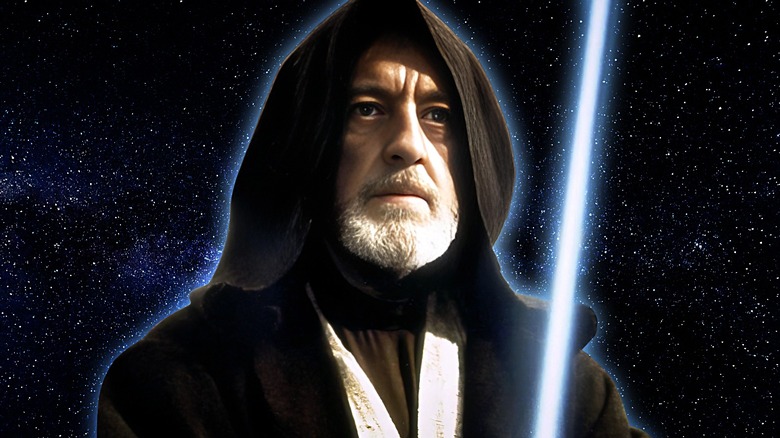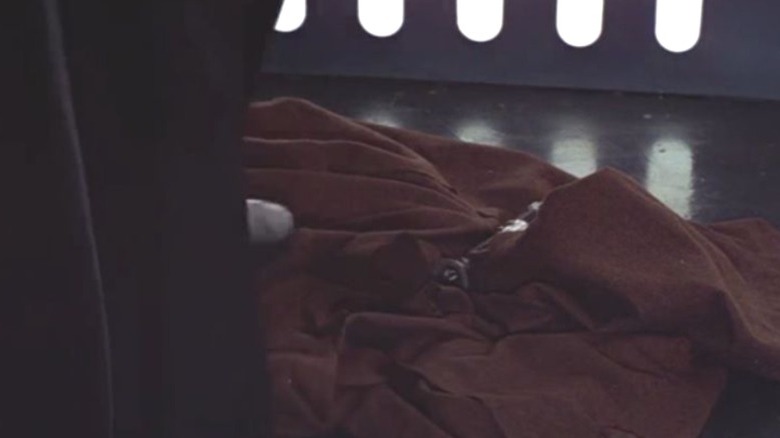Star Wars: Why Obi-Wan Kenobi Disappears When Darth Vader Kills Him
In one of the most emotional moments of "Star Wars: Episode IV – A New Hope," Obi-Wan Kenobi (Sir Alec Guinness, an actor who famously dissed the "Star Wars" franchise) sacrifices himself to save Luke Skywalker (Mark Hamill) and his allies. He allows Darth Vader (David Prowse, James Earl Jones), who had a surprising amount of screen time in the film, to strike him down with his lightsaber, affording Luke and company a chance to escape the Death Star. Despite being swiped with a lightsaber, though, Kenobi doesn't fall to the ground or sustain any visible wound. Rather, his entire body suddenly disappears, with nothing but his lightsaber hilt and robes falling to the ground.
For decades, the reason behind Kenobi's disappearance has been debated by "Star Wars" fans. At the time of publication, a canon reason for this phenomenon has yet to come to light. The most frequently cited theory is that Jedi who disappear when they die have given themselves over to the Force. They've accepted that their time in the physical world has come to a close and that they will now live on in a new ethereal form. This would explain why the likes of Yoda (Frank Oz) and Luke die in a similar ways, but not all Jedi dematerialize upon reaching the end of their life.
Of course, one has to wonder if "Star Wars" fans would even have this discussion had Kenobi's original franchise story been maintained.
Kenobi's death and physical disappearance almost didn't happen
Despite his death and his body's sudden disappearance, Obi-Wan Kenobi remains a constant in the original "Star Wars" trilogy. In both "Star Wars: Episode V – The Empire Strikes Back" and "Star Wars: Episode VI – Return of the Jedi," he reemerges as a Force ghost to help guide Luke Skywalker on his path to becoming a Jedi Knight. Ultimately, though, he doesn't dominate much of the runtime in either film. However, had "Star Wars" mastermind George Lucas not made some major story alterations, Kenobi's fandom debate-spawning death would've never happened.
"Obi-Wan went to the very end of the film, 'Episode IV,' I realized that when I came to the end battle, Obi-Wan had nothing to do but sit around and watch the battle," Lucas recalled. Continuing, he says that in "The Empire Strikes Back," Kenobi again had little to do as he educated Luke on the ways of the Force. Thus, Lucas came to the realization that he had to do something different with the character. "The character had become so strong the way Alec Guinness had presented it that I really couldn't do that. He was too noble. So I had to kill him off," the director shared (via @FindingTheForce on YouTube).
In the end, George Lucas made the right call killing off Obi-Wan Kenobi instead of keeping him alive. Not only is this one of many changes that made the "Star Wars" franchise better, but the disappearance of Kenobi's body has given fans something to think over and discuss for decades.

